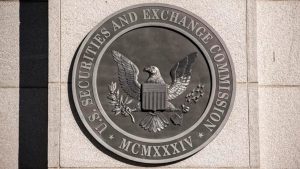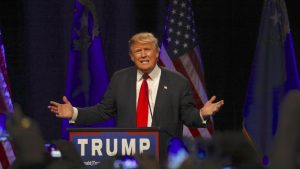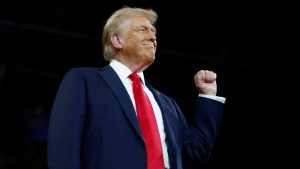Fed sees stablecoin as form of money, wants ‘robust’ role in its oversight, Powell says

United States Federal Reserve Board sees payment stablecoin as a form of money, chair Jerome Powell said during questioning at the House of Representatives Financial Services Committee’s semi-annual hearing on Fed policy on June 21.
Powell’s comments came in response to committee ranking member Maxine Waters, who’d asked for his reaction to the proposed stablecoin bill, which originated with the Republicans and would be the first crypto legislation in the United States, if passed.
Waters told Powell that the bill would create “58 different licenses with federal regulatory approval over only two of the licenses.” The remaining licenses would be issued by states, territories and other jurisdictions, which “takes state preemption to a whole new level,” she said. Powell responded:
“We do see payment stablecoins as a form of money […] and we believe that it would be appropriate to have quite a robust federal role in what happens in stablecoin going forward.”
“Allowing a lot of private money creation at the state level would be a mistake,” he added.
By providing commentary on the draft bill, Powell took a position that runs contrary to that of Securities and Exchange Commission (SEC) chair Gary Gensler. Gensler told a Senate Banking Committee hearing last year that stablecoins may require registration and regulation and has repeatedly stated that all cryptocurrency except Bitcoin (BTC) is a security.
Related: Are stablecoins securities? Well, it’s not so simple, say lawyers
Powell’s position does not conform any better to Commodity Futures Trading Commission (CFTC) chair Rostin Behnam’s claim that stablecoin will be determined to be a commodity. There is no easily accessible Fed definition of money, but it is commonly considered a means of exchange. Commodities are defined under U.S. law as “goods and articles […] and all services, rights, and interests […] in which contracts for future delivery are presently or in the future dealt in.” The definition of a security is much more intricate.
#TODAY @ 10 AM – Ranking Member @RepMaxineWaters leads Democrats as the full Cmte holds a hearing entitled “The @federalreserve’s Semi-Annual Monetary Policy Report.”
: https://t.co/eLea11sV1m: https://t.co/0bTBgQgsZ0
— U.S. House Committee on Financial Services (@FSCDems) June 21, 2023
Also on June 21, former CFTC chair Chris Giancarlo weighed in on the bill in an editorial in The Hill. All licensing authorities would have “the discretion to coerce stablecoin protocols to deny services to lawful but politically disfavored businesses,” he said. He called that fact a “glaring omission” that could enable a government policy similar to the Obama administration’s Operation Choke Point. Giancarlo said:
“The simple fix to this problem is to provide that government licensing authorities have no discretion to pick and choose among otherwise lawful activities and condition licensure on the stablecoin’s denial of legal transactions.”
Otherwise, “stablecoin transactions will be frighteningly beholden to the shifting political winds of Washington,” Giancarlo said.
Magazine: Unstablecoins: Depegging, bank runs and other risks loom














